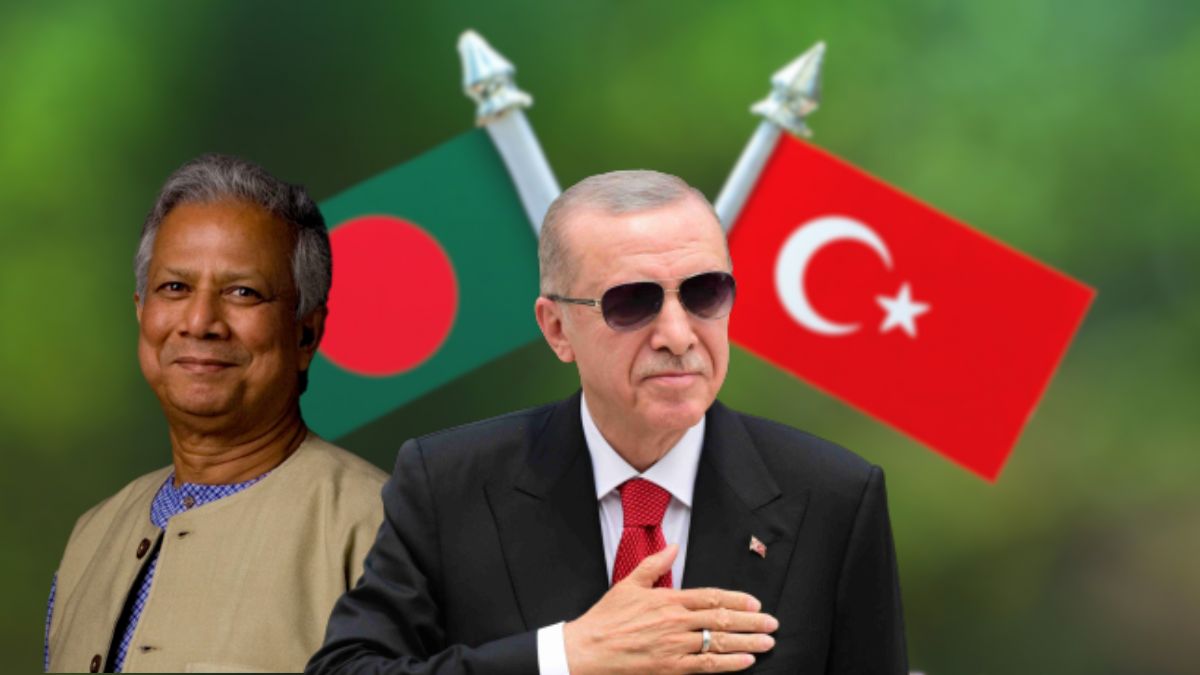Turkey Eyes Strategic Inroads Into Bangladesh Amid SAARC’s Decline And Asian Realignment

Image courtesy: RNA
As South Asia undergoes a strategic churn, Turkey appears poised to follow Pakistan’s footsteps in expanding influence in Bangladesh, a country that has seen political upheaval and growing geopolitical importance since the ouster of Prime Minister Sheikh Hasina in August 2024.
In a move loaded with strategic implications, Haluk Gorgun, head of Turkey’s Defence Industry Agency (SSB), is slated to visit Dhaka from July 8 for an eight-day visit. He is expected to hold high-level meetings with interim Prime Minister Muhammad Yunus and Bangladesh’s three military service chiefs. The visit signals Ankara’s intent to deepen military-industrial ties with Dhaka.
The Bangladesh Investment Development Authority (BIDA) is in talks with Turkish defence firms to set up industrial complexes in Chittagong and Narayanganj. BIDA’s executive chairman recently concluded a five-day visit to Turkey, while Bangladesh’s foreign affairs adviser Md. Touhid Hossain, during the Antalya Diplomacy Forum, also highlighted interest in Turkish aerospace cooperation. These developments signal a pivot in Bangladesh’s foreign policy that could realign strategic postures in South Asia.
Is Turkish Islamist Footprint Raising Alarms in South Asia?
While defence ties are being formalised, Indian intelligence sources have raised red flags over Turkey’s covert activities in Bangladesh. Reports suggest that Turkish intelligence agencies are offering financial and logistical support to Islamist groups, particularly Jamaat-e-Islami, which has a controversial legacy in Bangladesh. Funding for the renovation of Jamaat’s Dhaka office and the alleged facilitation of visits by Islamist student activists to Turkish arms facilities point to a deeper, possibly destabilising, involvement.
These links, especially when paired with rising Islamist sentiments in Bangladesh’s transitional phase, raise questions about Turkey’s real strategic motivations. For India, already wary of Pakistan-backed radicalisation in the region, Turkey’s role may become an additional security concern, following Ankara’s support to Islamabad, along with Beijing, during India’s May 2025 Operation Sindoor to avenge the Pahalgam terror attacks in April.
Is the New Bloc to Replace SAARC, With Bangladesh Playing Fiddle?
Meanwhile, Bangladesh has also engaged in talks with Pakistan and China to create a new regional grouping to replace the now-defunct South Asian Association for Regional Cooperation (SAARC). The Kunming meeting on June 19, reportedly attended by Bangladesh, China, and Pakistan, focused on regional connectivity and integration, a move likely aimed at bypassing India’s influence in SAARC.
However, Bangladesh has officially denied forming any political alliance, calling the Kunming talks “official-level” and not indicative of a new bloc. This balancing act suggests Dhaka is trying to diversify its strategic options without overtly antagonising New Delhi.
SAARC, formed in 1985, has been dormant since 2016, primarily due to India’s boycott of the Islamabad summit following the Uri terror attack that year. While India sought to revitalise SAARC through initiatives like the COVID-19 emergency fund, Pakistan repeatedly blocked key regional protocols, particularly on trade and counterterrorism.
Is Strategic Realignment Underway in South Asia?
With SAARC in limbo and Bangladesh exploring new defence and diplomatic partnerships, regional dynamics are undergoing a fundamental transformation. Turkey’s military overtures and alleged Islamist networking, coupled with Bangladesh’s engagement with China and Pakistan, signal a recalibration of alignments. For India, this presents both a strategic challenge and an opportunity to reassert its regional leadership through proactive diplomacy and security partnerships.







